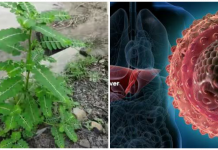Monkeypox is the newest epidemic and an emerging disease that is causing panic and fear in Nigeria today. Take a look a look at the smashing headlines culled from major newspapers:
10 infected, 49 under surveillance as monkeypox hits Bayelsa!-Vanguard
Monkeypox spreads to Rivers as residents suffer attack- Daily post
Fear grips akwa- ibom residents as monkeypox to uyo- vanguard
Cross-rivers records first case of monkey pox- daily post
Monkeypox hits Lagos, 2 cases recorded-vanguard
Monkey pox hits Lagos, Ogun, Ekiti and 4 other states-newtelegraph
You can see yourself that the disease is spreading fast from the Niger Delta to the South- Western part of Nigeria with little or no efforts in stopping it. Monkey pox have brought fear, panic and dispair just like lassa fever and Ebola. It is not a spiritual attack.It can be nipped on the bud before it claims its first victim. Right now, there is no cure or vaccine for the monkeypox disease hence, prevention is key in curbing the outbreak. Information gathering and provision on the virus’s mode of transmission, spread,and its brief history may just be what we need to save someone’s life. Let me share important insights into the newest epidemic in town below:
1.Monkeypox facts: what is monkey pox?
- monkeypox is a zoonotic infection of viral origin
- A zoonotic infection is an infection transmitted from animals to humans
- The virus was first isolated from monkeys in 1958 hence the name “monkeypox”.
- It affects both male and female equally with no racial predilection
- Monkey pox is a contagious disease but not that deadly as compared to lassa or ebola.
- There is no specific scientific name for monkey pox. It belongs to the family poxviridae and genus orthopoxvirus
- So far, about 15 states have been hit with the the virus that started in Bayelsa.
- The first case(index case) of monkeypox occured in a family in Bayelsa that keeps a monkey as pet.
- Monkeypox has similar symptoms and signs as small pox though it is milder and less fatal when compared to small pox
- Monkey pox was first isolated from a human source in Democratic Republic of Congo 10 years before the world was declared free of the small pox
- The disease is endemic in the rainforest of the Congo Basin of Africa and west africa.
- Mode of transmission is contact with infected animals and their body fluids like urine, faeces, saliva
- Infection can also be contracted from bites from infected animals.
- The symptoms of monkey pox usually lasts for 2-4weeks
- The incubation period (time of infection to symptoms) for monkeypox is about 7-10 days but can range from 5-21 days.
- The fatality rate (no of infected persons that will die from a disease) of monkey pox is about 1-10%
- So far in Nigeria, there have not been any reported cases of death
- Monkey pox infection is self-limiting. i e. it can resolve on its own without medical intervention
- So far, there is no treatment or vaccine for monkey pox
- The animals implicated in the monkey pox epidemic apart from monkeys are: Gambian giant rats, porcupines, prairie dogs, gazelles, gorillas, chimpanzee and even domesticated animals.
- The federal government of Nigeria has advised her citizens to avoid eating bushmeat for the now.
2.Brief history of monkey pox
The history was culled from the WHO and other sources.
- Monkey pox was first isolated in 1958 from a group of sick monkeys in Denmark.
- The human infection with monkey pox was first described in a-9-month-old from Democratic Republic of Congo in 1970.
- Between 1970-1986, about 10 cases of monkey pox have been reported in Nigeria, Liberia, Ivory Coast and Sierra Leone. 394 cases had been reported in Central African Republic alone in the same period.
- In 2003, the first case of monkey pox was reported in the USA. The primary source of the US outbreak was the native prairie dogs housed with rodents imported from Ghana in West Africa.
- In 2005, monkey pox outbreak occurred in Sudan with 2 cases.
- In 2009, monkey pox was identified in refugee camps in the DR Congo and Republic of Congo.
- In 2016, 26 cases of MP was identified in Central Africa Republic
- The current outbreak of monkeypox in Nigeria occurred in Bayelsa and has spread to states like Lagos, Ogun, Rivers, Cross-rivers, Ekiti, Akwa-ibom e.t.c.
3.monkeypox outbreak in Nigeria: how it all started in Bayelsa
As culled from the Nation newspaper, eye witness report claimed that the index case occurred in Ogbia Local Government Area, Bayelsa,where an 11-year- old boy and his 6-year old younger brother contracted the virus from their monkey pet. They were said to had always played with the infected monkey who licks them and climbs on them.They got infected and were subsequently isolated with their parents quarantined. From the point source of infection the disease has continued to spread.
4. Monkeypox mode of transmission: what is its mode of transmission?
- Contact with infected monkeys.
- Bites and scratches from infected animals.
- Contact with infected rodents e.g rats, squirrels.
- Contact with respiratory droplets of infected persons
- Eating poorly cooked meat
- Contact with blood, saliva, tears, urine and rash.
- Contact with clothings or beddings of infected persons.
- Shared utensils, bed room, and handshakes increase risk of transmission.
- From mother-to-child via the placenta-cogenital monkey pox.
5.what are the signs and symptoms of monkey pox
According to the Center for Disease Control the symptoms of monkey pox starts with
- Fever
- Headaches
- Muscle pains
- Backache
- Swollen lymph nodes
- Chills and exhaustion
Within 3 days after the appearance of fever, the patient develops large lumpy rash on the face then spreading to all parts of the body.
The rash are initially flat, later become raised with clear fluid, then the fluid becomes pus and later dries up forming crusts and scabs.
The illness usually lasts for 2-4 weeks.
6. Monkey pox vaccine: is there a vaccine?
According to the World Health Organization; right now, there is no vaccine for the monkey pox. Though, the small pox vaccine has proven to be 85% effective in preventing monkey pox but the vaccine is no longer available to the general public after it was discontinued following the global small pox eradication in 1980.
7. Fatality rate of monkey pox
The number of infected persons that die from the disease is about 1-10% with the highest rates occurring in children and individuals without vaccination.

8. Treatment of monkey pox
This is a case of prevention is cheaper and better than cure. According to the Minister of Health, Prof Isaac Adewole, “Monkey pox neither has a cure nor a vaccine, however, there is no cause for alarm as the disease is mild. Just be at alert and avoid crowded places and bushmeat as much as possible.”
For persons already infected:
- Observe standard precautions
- Isolate the patient
- Quarantine persons infected persons has had contact with.
- Contact tracing
- Give antivirals like acyclovir
- Supportive therapy like adequate fluids, pain-relievers may help
- Control the high temperature
- Monitor urine output and
- Re-assure the patient
9.Full list of states affected by monkeypox in nigeria
The list is not going to be exhaustive as new cases may be identified and confirmed in new states across the federation if the monkey pox virus continue to spread. About 15 states have been affected. See list below
- Bayelsa
- Rivers
- Cross-river
- Akwa-ibom
- Lagos
- Ogun
- Ekiti
- Delta
- Enugu (there is now a confirmed case)
- Abuja (federal capital territory)
- Imo
- Niger
- Nasarawa
- Kano
- Benue
- Edo
- List will updated from time to time.
10.Monkeypox prevention
In the absence of specific treatment or vaccines the only way of reducing infection in persons is through the following:
- Handwashing with soap and water or alcohol-based sanitizer
- Either you avoid bushmeat for now or properly cook your meat before eating.
- Do not kill sick animals for food.
- Isolation of identified cases and quarantining of suspected cases.
- Use of personal protective equipment (PPE) e.g. gloves by health workers when caring for infected patients.
- Health workers should have high index of suspicion.
- Small pox vaccination for persons taking care of infected individuals or animals.
- Report suspected cases promptly.
- Mass campaigns and promotion of awareness programs.
11. Nigerian government response to monkeypox. What is the government doing about it?
So far, the Bayelsa state government has established a 12-member rapid response health team consisting of medical professionals and public health experts to check possible spread of the disease.
The Federal Ministry of Health has advised Nigerians to avoid eating dead animals, bushmeats and particularly bush monkeys. The ministry has sent blood samples to the regional headquarters of the WHO in Senegal and results came out positive.
If you see any suspected case(s);call any the emergency numbers below:
- Dr Ndokinta 08066997434
- Dr Appah 08035272674
- Dr Ariyibi 08092855111
- Dr Eguvbe 08036087938- Otuoke
- Dr Stella Rotifa 08036722138- Yenogoa/Otuoke
Above is the response team set-up by federal government at federal medical centre, Yenogoa. You can call them anywhere you are in Nigeria and they will respond.
READ ALSO: LASSA FEVER PREVENTION AND FULL LIST OF STATES AFFECTED.
12.Conclusion
Monkey pox is the most recent epidemic to hit Nigeria after lassa fever, cerebrospinal meningitis and ebola. The index case in Nigeria had occurred in Bayelsa.
Right now, there is no cure or vaccine for the disease so prevention of spread is key. This can be achieved through massive campaigns, hand washing, prompt treatment, isolation of cases, and contact tracing. Reducing the morbidity and mortality of monkey pox is not the responsibility of the government alone, all hands must be on deck.
Resources: World Health Organization
Help me share.























This is very helpful. Thanks for the nimedhealth
*thanks for the information*